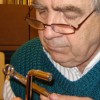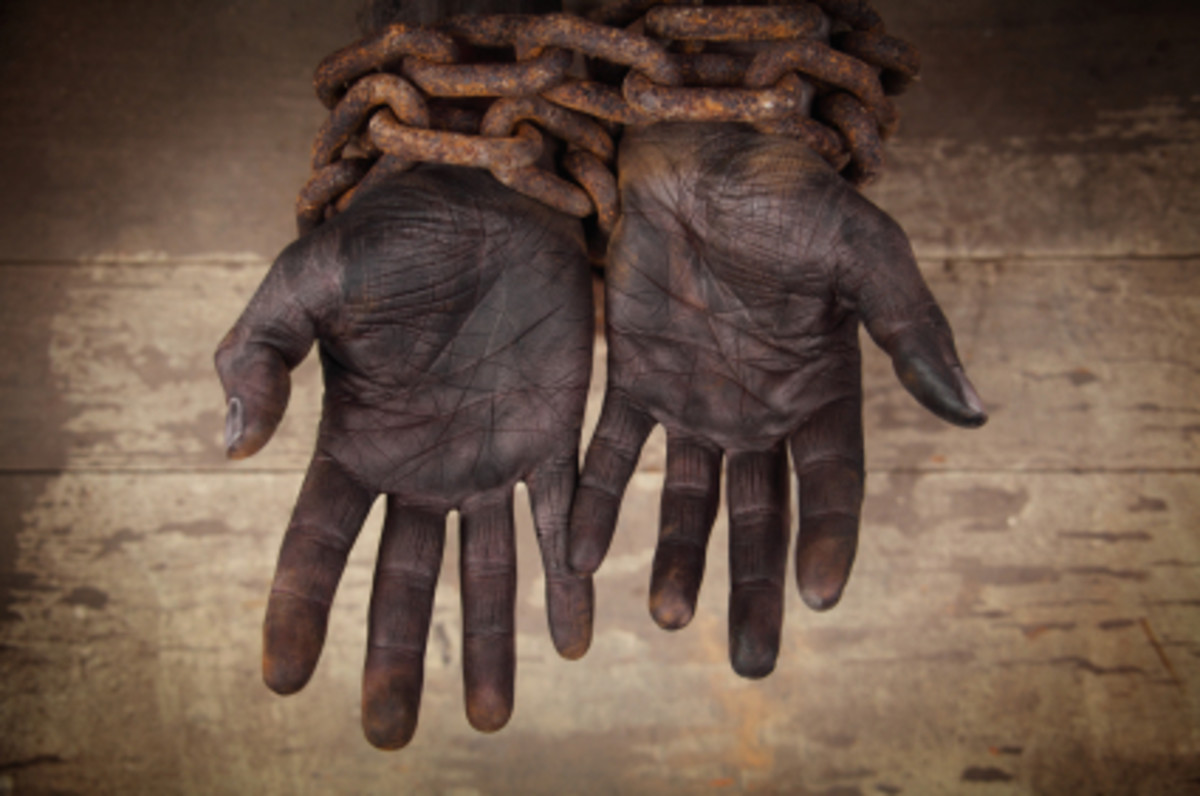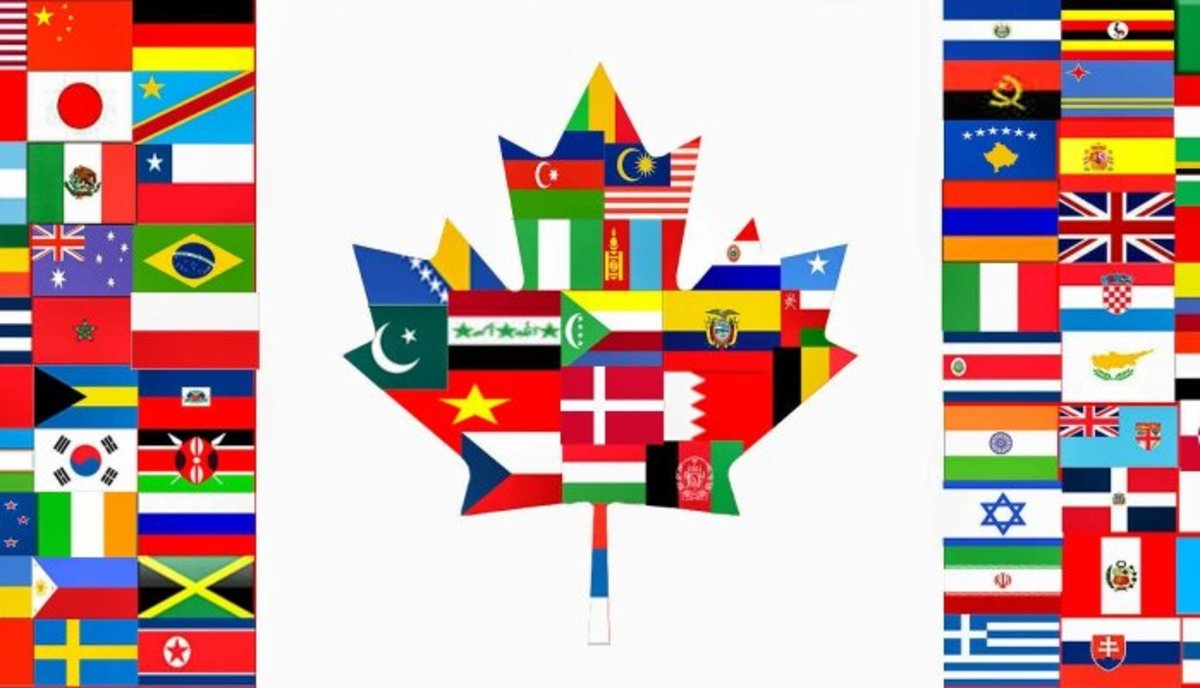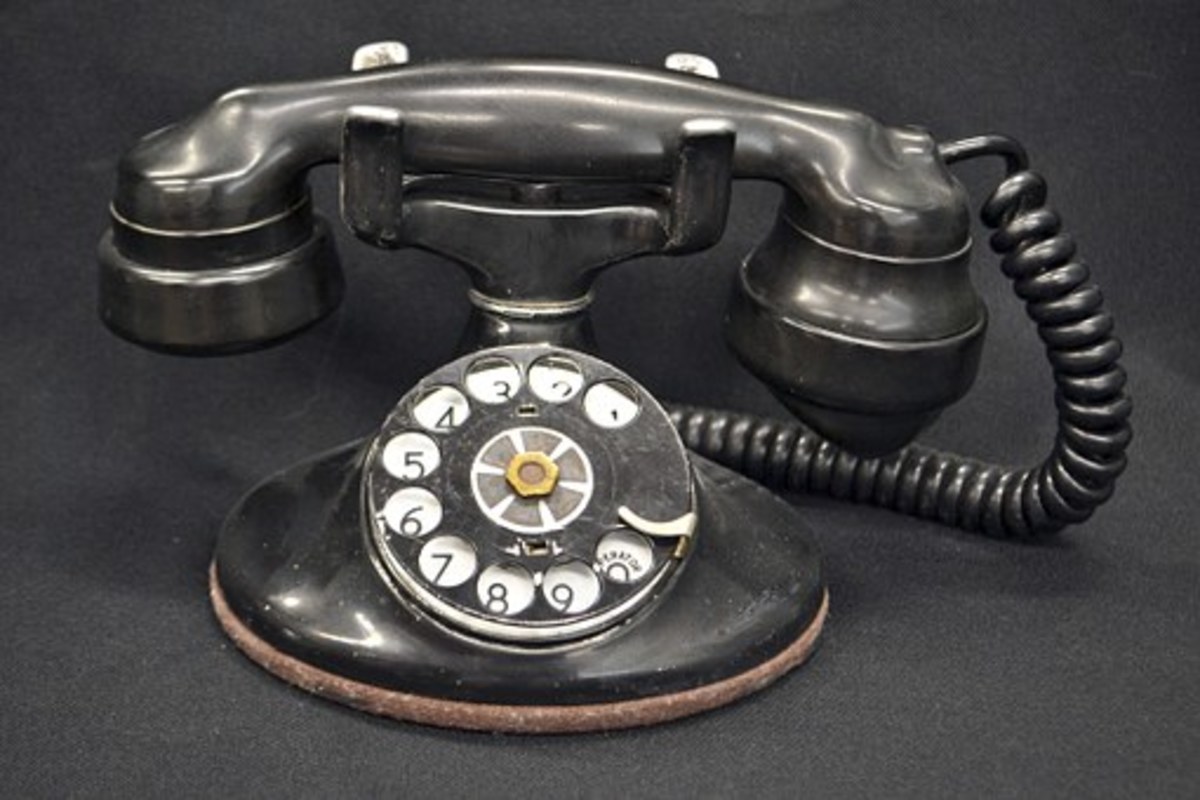From Slave to President of the United States

In this article, I wish to contrast "the beginning from the end," showing the before-and-after conditions prevalent in the African-American culture. In doing so, I hope to convey the intellectual and artistic potential of these people, and demonstrate that we should feel grateful that we have them in our midst. Of course, we should mourn our heartless involvement in the way the people were originally torn from their homelands, but if we remember how to avoid such behavior in the future and think of the present, I believe we will learn great lessons from what is before us now.
Many of the African Americans from the slave era are from the sub-Saharan African and Sahelean cultures1, from which we get "call and response" usage in music, as well as syncopation, swung notes, blue notes, the use of falsetto, and complex multi-part harmony2. Slave holders tried to suppress all tendencies of the Blacks to maintain an identity, but many traditions and beliefs survived and ultimately have been assimilated into white culture. Slavery itself has spawned a whole new genre of music and other by-products that have infiltrated into our society, things that helped to shape the philosophies that guide us. One such gift is our eventual realization that color is not a factor in judging competence or intelligence.3 As we review the achievements and extraordinary talents of African Americans, we can see how true this is.
If a study in the past has ever placed African Americans in a lower category than whites - whether it be intellectual or behavioral - it is because the study has not taken into account the withholding of opportunities and benefits that continually plagued the Blacks, as well as scattered acts of discouraging events that suppressed the energy and potential inherent in that race. Only recently has this injustice been corrected, and we now see how much these people are capable of, and how they are contributing to our society in the way of music, dance, science, hair styles, fashion, cuisine, religion and philosophy. The fact that many African Americans overcame those stifling influences - as shown by their achievements and as outlined here - before full maturation of benign American attitudes (which, by the way, was helped along by the artistic and poetic achievements of those same African Americans4,5), shows how they deserve to be classed among the brightest of the white culture.
Another example of African American practices that worked their way into the white culture is Rap Music6, which ultimately led to the widely popular and loved "hip-hop." This has been influenced by their oral traditions, an alternative to written history which was suppressed during the slave period. Jazz, swing, and the blues also have connections to African American experiences.7
Some historians will say that the slaves were taken from those Africans who were prisoners or offenders of some kind, and therefore should be considered inferior. But if the same happened with whites - that is, if slaves were taken from Caucasian offenders and criminals - you would get the same classification tendency for them. In other words, it's not a question of race or color, it's a question of circumstances. The fact is that despite the supposed questionable ancestry of the African Americans, wonderful things have come of them, which in reality should be an even greater accolade to their overall tendency to overcome in all areas.
Listen to the type of music produced by the Africans in this number called "Betelehemu." It is not only a treat for the ears and mind, but has delightful visual accompaniment as well, especially at the end. Except for the percussion, note the a cappella performance. I liked the version as performed by the Mormon Tabernacle choir, which I feel accurately portrays the spirit of the song, and the wholesomeness of the people:
Nigerian Carol: Betelehemu
Available on Video:
I could go on about how African Americans have influenced dance, the arts, attitudes and philosophy, but it would surpass the basic intent of this article and would be fairly redundant as an internet article, as this information is easily found in wikipedia and on other internet cites. Instead, I would like to highlight a few of the scientific achievements of African Americans, as this tends to show a more valuable and useful example of how these people have contributed to things that affect us for the good:
Doctor Patricia Bath, an ophthalmologist from New York, patented a method - the Laserphaco Probe - for removing cataract lenses more accurately.
Lewis Latimer invented the Carbon-filament Light Bulb in January, 1881. Latimer took Edison's light bulb, and adapted it for everyday practical living.
Garrett A. Morgan invented the Gas Mask, first used in 1916
James E. West invented the Electroacoustic Transducer Electret Microphone in 1962. It was initially used in telephones, and has come to be used in approximately 90% of devices using microphones today.
George Carruthers patented the Far-Ultraviolet Camera and Spectrograph on November 11, 1969. It is used in astronomical science. His invention went to the moon on Apollo 16.
At the bottom of this article, I have included a link to the TV series Roots, by Alex Haley. It shows a history of the African American experience in revealing detail, and is a great textbook to the student of this historic phase. The link below is an introduction to the series.
The last video - of Whitney Houston's performance - is, to me, a symbolic culmination of the refining process of the African Americans as forged by the Black and White American people. I can't picture a single heart not being touched, edified, and inspired by the experience. And don't forget another symbolic achievement for the Blacks: the election of an African American to the office of President of the United States, for two consecutive terms!
Roots tribute to Kunta Kinte: http://www.youtube.com/watch?v=Zfp-KOlx6Ao
Sources:
1. Wikipedia, Native American History and Culture.
2. Maggie Papa, Amy Gerber, Abeer Mohamed. "African American Culture through Oral Tradition". George Washington University. Archived from the original on 2008-05-27. Retrieved May 17, 2007, as cited in Wikipedia.
3. Evidence of this is shown in the attached videos and links, as well as the text of this article.
4. "Black Power". Black Arts Movement. University of Michigan. Archived from the original on 2008-02-27. Retrieved 2007-06-02.
5. "Nikki Giovanni". Black Arts Movement. University of Michigan. Archived from the original on 2008-03-03. Retrieved 2007-06-02.
6. Maggie Papa, Amy Gerber, Abeer Mohamed. "African American Culture through Oral Tradition," George Washington University. Archived from the original on 2008-05-27.
7.Michael L. Hecht, Ronald L. Jackson, Sidney A. Ribeau (2003). African American Communication: Exploring Identity and Culture? Routledge. pp. 3-245).
This experience - and its performer - is beautiful in every way
A good hub with supporting facts, by Rodric A. Johnson
- The Truth about Being Black in America
The fact that African Americans are called African at all is an indication of the limited explanation of this group's history. The nationalities of Black American ancestors are a mystery for the great majority of the group. Slavery stripped this grou







